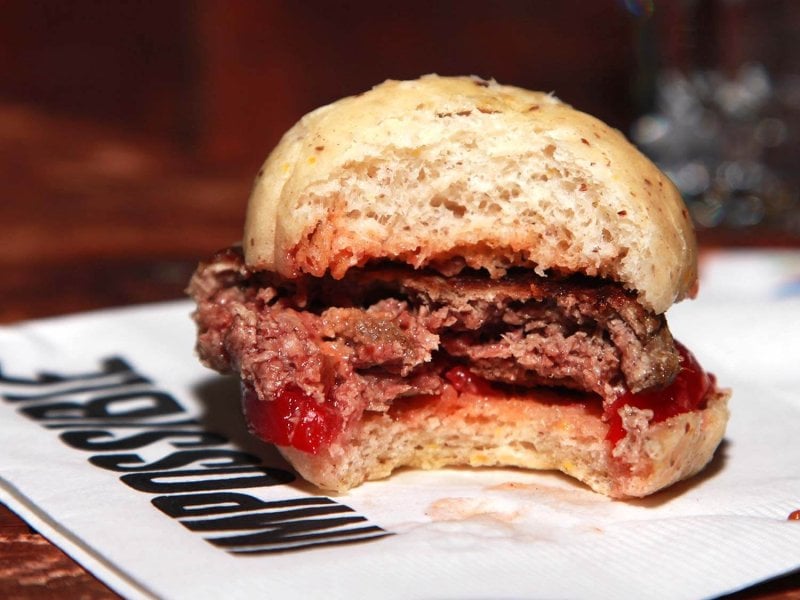[Editor’s note: Dan Blaustein-Rejto is a food and agriculture analyst at the Breakthrough Institute. He holds a Master’s in public policy from the University of California Berkeley.]
Pound for pound, [beef] has a higher carbon, land, and water footprint than other widely consumed foods. For instance, pasture for cattle grazing takes up over 400 million acres in the US and covers a quarter of the world’s land area. Additionally, over one-third of US corn produced is used for animal feed, with millions of acres of corn farmland devoted to growing feed for beef cattle. Some of this land has replaced or is infringing on prairie, grassland, and wetland ecosystems.
Plant-based burgers and other meatless alternatives, like in vitro meat, promise the taste and experience of a beef burger with a far smaller environmental impact.
…
How would this help the environment? Based on existing estimates, this replacement would reduce US agricultural greenhouse gas emissions by 24 to 58 million metric tons CO2 equivalent, or by 4.6 to 11.1 percent. Although not a huge percentage, it would be meaningful change—the equivalent of taking 5 to 12 million cars off the road. Just as importantly, it could reduce total land use by 22 million acres, freeing up land for people and animals to enjoy.
…
Are we willing to forgo these benefits because activists don’t approve of the genetic engineering technology used to make one ingredient?
The GLP aggregated and excerpted this article to reflect the diversity of news, opinion and analysis. Read full, original post: Where’s the Fake Beef?































